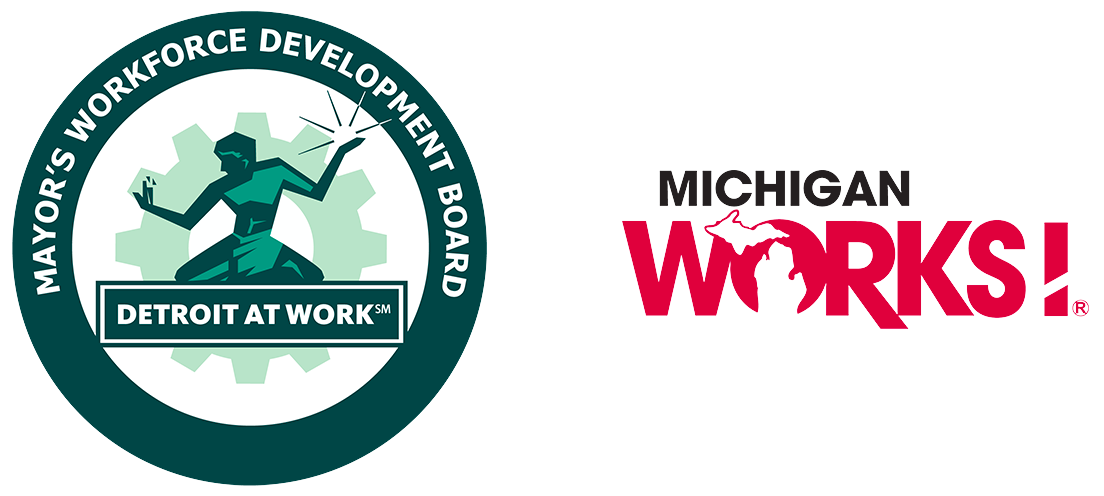Marshall Plan for Talent aims to build Michigan students’ career skills MI Apprenticeship
In his personal life, Nick Krueger knows firsthand what the lack of Professional Trade workers can mean for the typical Michigander.
Professionally, he’s part of the group of educators, policymakers and businesses striving to do something about it.
“We’re having our kitchen redone in our house, and sometimes parts of the project will get delayed because there aren’t enough skilled workers to go around,” said the chair of the Career and Technical Education Department at Owosso High School in mid-Michigan.
To help address the growing shortage of Professional Trade workers in a wide range of industries throughout the state, Gov. Rick Snyder in June signed into law the Marshall Plan for Talent, a $100 million workforce development initiative that aims to close Michigan’s talent gap and prepare young people for the high-paying, high-demand jobs of the future that may not require a four-year college degree.
Named after the Marshall Plan that rebuilt Europe after World War II, the initiative is intended to fundamentally restructure Michigan’s education and talent development system.
Under a key part of the multipronged plan, education and business leaders will be able to apply for more than $59 million in innovation grants to create and develop classes and programs — or fill gaps in existing classes — that prepare students for high-demand, high-wage careers in Michigan.
“The Marshall Plan for Talent is a conduit for collaborations and innovations that will revolutionize Michigan’s education and talent development system,” said Roger Curtis, director of the Talent and Economic Development Department of Michigan, which brings the state’s job creation and economic development efforts under one umbrella. “Now that Michigan has this essential talent development tool, it’s time to get to work in revolutionizing our dated education and talent development system, so we can compete in the 21st-century global economy.”
Other components of the plan include offering grants to school districts to buy equipment on which students can learn the skills for high-demand jobs and supplying scholarships and stipends toward the completion of certifications in high-demand fields for low-income Michigan residents. The Marshall Plan funding complements the more than $225 million in existing talent development efforts in the state.
Educators applaud the plan’s focus on partnerships and collaboration.
“I think it’s a really good strategy,” said Rose Bellanca, president of Washtenaw Community College. “I’m pleased to see that what it’s doing is combining business and industry with education. For too long, they’ve been separate entities. The connection of preparing students for the world of work has not always been there.”
State’s future vitality at stake
The Marshall Plan aims to help students find opportunities in numerous fields, including information technology and computer science, manufacturing, health care and other business and Professional Trades careers.
“These fields are all expected to see massive growth within the next few years, and considering the pool of available employees as it is now, the state of Michigan will not have enough skilled workers to fill them,” Curtis said.
In fact, projections indicate the state will have more than 811,000 high-demand career openings through 2024, the Michigan Department of Technology, Management & Budget’s Bureau of Labor Market Information and Strategic Initiatives projects. The jobs will offer annual average salaries topping $60,000.
Whatever their station in life, all Michiganders stand to benefit from Marshall Plan successes, Bellanca said. Skilled workers help fuel healthy economies that in turn create robust and vital communities where people want to live, she added.
“It’s about economic development,” she said. “If you don’t have a skilled workforce, you aren’t going to attract businesses to your region, and you won’t have people who want to live there and support those businesses. Those are things that everybody should care about.”
The Marshall Plan could help galvanize partnership-based programs that are already in place or under development throughout the state, Bellanca said.
For example, based on feedback it sought from area employers, Washtenaw Community College in recent years has developed or enhanced programs designed to produce work-ready graduates in areas such as advanced manufacturing, information technology and health care.
Among the more popular offerings are the Sterile Processing Technician Certificate program, whose graduates process and sterilize hospital supplies, and the Welding and Fabrication Principles Certificate program.
“It’s hard to keep students in the welding program because employers hire them away after only a few classes,” Bellanca said.
A demand for welders also brought together Owosso High School’s Career and Technical Education Department, Baker College of Owosso and Crest Marine, a local manufacturer of pontoons.
Crest this spring donated a pontoon that the school district raffled to raise money to send two Owosso students to Baker’s welding program and otherwise benefit the CTE program.
“I think what’s huge about the Marshall Plan is that it’s promoting these types of partnerships,” Krueger said.
Beyond securing funding to establish programs and classes that prepare students for careers in the high-demand, high-wage fields, educators also must overcome misperceptions that persist about the type of work.
Consider a recent survey commissioned by the state, which gauged sentiment among Michigan students and parents toward apprenticeships, which are one way of preparing for a Professional Trades career.
Among the survey’s findings:
Students ages 14-30 are significantly more knowledgeable about the options of community colleges and four-year universities than apprenticeships.
At least 55% of parents say they are not knowledgeable about apprenticeship benefits.
Only 21% of parents view an apprenticeship as a good option after high school for their child or children.
“For years, all students have heard is that ‘you’ve got to go to college,’” Krueger said. “It’s tough to change mindsets.”
But Bellanca is hopeful attitudes will evolve as more students and parents realize the amount of talent and ability required to work in the Professional Trades.
“In the trades, you have to have math skills,” she said. “You have to know science. You can’t weld without knowing science.”
More information on the Marshall Plan for Talent is available at www.michigan.gov/marshallplan.
Read the original article here.




